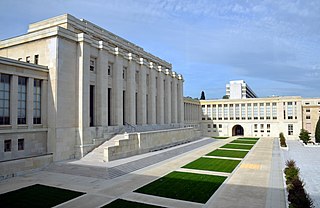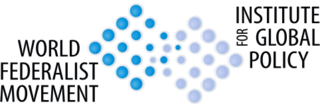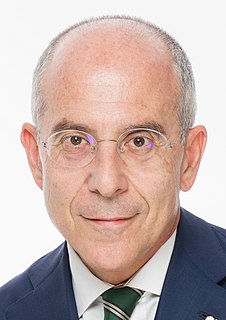Francesco Stipo was born in Rome, Italy, in 1973. He studied law at La Sapienza University, where he won an Erasmus scholarship that allowed him to continue part of his studies in Jerez de la Fontera, Spain.
While living in Spain he was the first man crossing the Straits of Gibraltar with a powered paraglider, on July 4, 1995. The event was reported in many Spanish newspapers including ABC, Diario de Jerez, Europa Sur and Italian magazines such as No Limits.
In 1996 he won a scholarship from the Italian National Council of Research on the subject "juridical discipline of the outer space"; the thesis, entitled "La Definizione del Concetto Giuridico di Spazio Cosmico", was published in the Italian law journal Giurisprudenza di Merito.
After obtaining a Ph.D. in international law, in 2001 he moved to the United States where he obtained a master's degree (LLM) in comparative law from the University of Miami.
Since 2002 he has been living in Miami, Florida; he has been working as a lawyer for European and American firms specializing in international business transactions. He fluently speaks 5 languages (English, Italian, Spanish, Portuguese and French) and has travelled extensively around the world. [1]
Dr. Stipo wrote books and articles published in Europe and the United States: The most important works are:
1) "World Federalist Manifesto. Guide to Political Globalization" [2]
The book offers the reader a global and unitary vision of international organizations, giving insights on the inner mechanisms of the United Nations and a creative and constructive approach to the phenomenon of globalization. The book encompasses all social sciences, examining international issues by a technical prospective, analyzing the economic, political, financial and legal elements of globalization and offering solutions to international problems. The author focuses on the political aspects of globalization, examining the application of a confederate political model at world level while reviewing the historical background of world federalism. The author presents a model of world confederation divided in international legislative, executive, judicial and financial branches. The authority of the world government is shared with the Member States, in a way that both are sovereign within their respective sphere of competence.
The world confederation, as envisioned by the author in the book, would not supersede the authority of the State governments but complement it, as both the States and the world authority would have power within their sphere of competence; the book presents a political globalization where the economic balances of world nations are preserved at international level. The World Federalist Manifesto constitutes an important contribution to the progress of humanity and is directed to all people directly or indirectly involved in globalization.
2) "United Nations Reorganization. The Unification of the UN System" [3]
The book deals with the reform of the United Nations, introducing the idea of a unification of the UN system. The author proposes the creation of a voting system proportional to the level of contribution, applicable to all UN specialized agencies, which would allow the central executive body (for example, the Secretariat) to draw up a budget plan, which would allocate the international contributions among the different specialized agencies. The book proposes the unification of the specialized agencies under one single budget, and a single voting system; they would change their juridical nature from separated agencies to International Ministries or International Departments: becoming internal divisions of the United Nations, their general policy would be directed by the Secretary General.
3) "The Reform of the Budget and the Administration of the United Nations. The Balanced Contribution Theory and the Introduction of an Income-Based Contribution System to the International Organizations" [4]
The book analyzes the main current issues of the international organizations: it examines the impact of United Nations]contributions on nations’ budget and tax rates, the economic cost of the fragmentation of the United Nations system in different specialized agencies and the risk of stall of the Security Council. The result of the analysis empirically demonstrates the adverse effects of international contributions on national budgets, due to the lack of balance between national income and the criteria of nations’ contribution to the UN, the World Trade Organization, the World Bank Group and the International Monetary Fund. The book shows the benefits of a greater voting power of developed countries, like the United States, in international organizations through the adoption of an income-based contribution system which balances nations’ voting power with the level of Member States’ national income.
Francesco Stipo has also published articles in European law journals:
1) "Disciplina del Sistema Globale di Navigazione Satellitare", published in Spain, in Revista Europea de Derecho de la Navegación Marítima y Aeronáutica, ISSN 1130-2127, Nº 14, 1998, 1891-1906 [5]
2) "La Definizione del Concetto Giuridico di Spazio Cosmico", published in Italy, in Giurisprudenza di Merito, May 2000, 1118, 1132.

The United Nations (UN) is an intergovernmental organization whose stated purposes are to maintain international peace and security, develop friendly relations among nations, achieve international cooperation, and be a centre for harmonizing the actions of nations. It is the world's largest and most familiar international organization. The UN is headquartered on international territory in New York City, and has other main offices in Geneva, Nairobi, Vienna, and The Hague.

The United Nations Economic and Social Council is one of the six principal organs of the United Nations, responsible for coordinating the economic and social fields of the organization, specifically in regards to the fifteen specialised agencies, the eight functional commissions, and the five regional commissions under its jurisdiction.

The United Nations System consists of the United Nations' six principal organs, the Specialized Agencies and related organizations. The UN System includes subsidiary bodies such as the separately administered funds and programmes, research and training institutes, and other subsidiary entities. Some of these organizations predate the founding of the United Nations in 1945 and were inherited after the dissolution of the League of Nations.

A United Nations Parliamentary Assembly (UNPA) is a proposed addition to the United Nations System that would allow for greater participation and voice for members of parliament. The idea was raised at the founding of the League of Nations in the 1920s and again following the end of World War II in 1945, but remained dormant throughout the Cold War. The Campaign for a United Nations Parliamentary Assembly (CUNPA) was formed in 2007 by Democracy Without Borders to coordinate pro-UNPA efforts, which as of June 2017 has received the support of over 1,600 members of parliament from over 100 countries worldwide. The Commission on Global Security, Justice and Governance, chaired by former U.S. Secretary of State Madeleine Albright and former Nigerian Foreign Minister Ibrahim Gambari, has called for the creation of a United Nations Parliamentary Network "to raise greater awareness and participation by strengthening the voices of legislators in global institutions." The commission proposes that this Network "would be similar in initial composition to the Parliamentary Network on the World Bank and International Monetary Fund and the Parliamentary Conference on the World Trade Organization". In July 2018, the European Parliament adopted a recommendation to the European Council endorsing a proposal for the establishment of a United Nations Parliamentary Assembly.

The Pisa University System is a network of higher education institutions in Pisa, Italy. The following three schools and universities belong to the system:
Joseph E. Schwartzberg was an American writer, peace activist, and a world federalist, who was a tenured professor at the University of Minnesota. Author of numerous books, he was the editor and principal author of the Historical Atlas of South Asia, which in 1980 won the Watumull Prize of the American Historical Association. In 1984 the American Association of Geographers honored him with their annual award. His several substantial chapters in Book One of Volume Two of The History of Cartography were instrumental in that work receiving the R. R. Hawkins Award for Best Scholarly Book for 1992 from the Association of American Publishers. He served on the board of directors of the World Federalist Association, has chaired its Policy and Issues Commission, and is President of the Minnesota chapter of Citizens for Global Solutions.
Schwartzberg's weighted voting is a weighted voting electoral system, proposed by Joseph E. Schwartzberg, for representation of nations in a reformed United Nations.
Giambattista Almici was an Italian jurist.
Proposals for the creation of a United Nations Environmental Organization (UNEO) have come as some question the efficacy of the current United Nations Environment Programme (UNEP) at dealing with the scope of global environmental issues. Created to act as an anchor institution in the system of Global Environmental Governance (GEG), it has failed to meet those demands. The UNEP has been hindered by its title as a Programme as opposed to a specialized agency like the United Nations Educational, Scientific and Cultural Organization (UNESCO) or the World Health Organization (WHO), in addition to a lack of voluntary funding, and a location removed from the centers of political power, in Nairobi, Kenya. These factors have led to widespread calls for UNEP reform, and following the publication of Fourth Assessment Report of the IPCC in February 2007, a "Paris Call for Action" read out by French President Chirac and supported by 46 countries, called for the UNEP to be replaced by a new and more powerful United Nations Environment Organization, to be modelled on the World Health Organization. The 52 countries included the European Union nations, but notably did not include the United States and BRIC, the top five emitters of greenhouse gases.

Chapter IV of the United Nations Charter contains the Charter's provisions dealing with the UN General Assembly, specifically its composition, functions, powers, voting, and procedures.

Sabino Cassese is an Italian Professor of Administrative Law and a former judge of the Constitutional Court of Italy.

An international organization or international organisation, also known as an intergovernmental organization or an international institution, is a stable set of norms and rules meant to govern the behavior of states and other actors in the international system. Organizations may be established by a treaty or be an instrument governed by international law and possessing its own legal personality, such as the United Nations, the World Health Organization and NATO. International organizations are composed of primarily member states, but may also include other entities, such as other international organizations, firms, and nongovernmental organizations. Additionally, entities may hold observer status.

Political globalization is the growth of the worldwide political system, both in size and complexity. That system includes national governments, their governmental and intergovernmental organizations as well as government-independent elements of global civil society such as international non-governmental organizations and social movement organizations. One of the key aspects of the political globalization is the declining importance of the nation-state and the rise of other actors on the political scene. The creation and existence of the United Nations is called one of the classic examples of political globalization.

The World Federalist Movement advocates strong democratic institutions adhering to the principles of subsidiarity, solidarity and democracy.

The World Federalist Movement — Canada (WFMC) is a member organization of the World Federalist Movement, a global citizens movement dedicated to promoting institutions of world governance. WFMC has a national headquarters in Ottawa, and active branches in Vancouver, Victoria, and Montreal. Since its founding in 1951, the WFMC and its predecessor organizations have been a strong advocate for the application of the principles of democratic federalism to world affairs. It advocates for the strengthening international bodies and democratizing existent global institutions.

Francesco Starace is an Italian business executive and the CEO and general manager of Enel Group.
Antonio Saggio.
The least of the great powers is a label used to conceptualize Italy's international status. This concept originated with the unification of the country in the late 19th century, when Italy was admitted in the concert of powers. Nowadays, Italy is also part of great power concerts such as the EU trio, the NATO Quint, the G7 and various International Contact Groups. Italy is also one of the UN's and the EU's major funders, the leading nation of the Uniting for Consensus, and serves as one of the states of "chief" importance in providing shipping services, air transport, and industrial development. Alternative terms used by academics and observers to describe this concept include "intermittent major power" and "small great power".
World federalism or global federalism is a political ideology advocating a democratic, federal world government. A world federation would have authority on issues of global reach, while the members of such a federation would retain authority over local and national issues. The overall sovereignty over the world population would largely reside in the federal government.